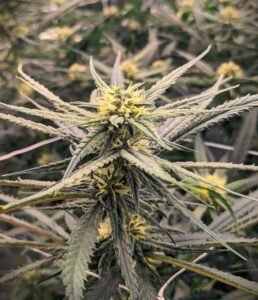Lean Farming: Inventory

“Cash Sitting On A Shelf”
Managing Inventory to Maximize Lean Farming Efficiency
In lean farming, managing inventory is essential to maintaining efficiency and profitability. Excess inputs, WIP (work in progress), and finished goods tie up cash flow and hide problems. These hidden issues often go unnoticed until they disrupt operations or impact product quality.
To begin with, excess inputs consume valuable space and resources. They also increase the risk of spoilage, contamination, or obsolescence. By reducing input levels to match actual demand, farms can free up capital and improve responsiveness.
Likewise, WIP can create bottlenecks and slow down production. When too many tasks remain unfinished, it becomes difficult to track progress or identify delays. Streamlining workflows and limiting WIP helps teams stay focused and maintain consistent output.

Finished goods, when stockpiled, may seem like a safety net. However, they often mask inefficiencies in packaging, distribution, or sales. Instead of adding value, they tie up cash and increase storage costs. Lean farming encourages just-in-time production to align output with customer demand.
Moreover, excess inventory can lead to waiting. Employees may spend time searching for materials or navigating cluttered spaces. These delays reduce productivity and frustrate staff. A clean, organized environment supports faster movement and clearer decision-making.
Adding value to the end customer is the ultimate goal. Every item stored without purpose detracts from that mission. Farms must evaluate inventory regularly to ensure it supports—not hinders—customer satisfaction.
How To Address These Challenges?
Cannabis farms should implement visual inventory systems, such as kanban boards or labeled zones. These tools make it easier to monitor stock levels and identify issues early. Additionally, involving employees in inventory planning fosters accountability and continuous improvement.
Some more helpful ideas…
- Understand your supply chain and think ahead. Prepare accordingly for disruptions, and ultimately learn which manufacturers deserve your trust.
- Dedicate an employee to ordering, even if it is just a part-time position. Clearly defining this role at your facility will prevent miscommunication between departments and over-ordering as well as under-ordering supplies.
- Do not keep pallets of nutrients, substrate, Mom stock, or packaging sitting around at your facility. Not only does this take up valuable space, but creates more waste as products may expire. This puts you at a greater risk of producing low-quality cannabis.
- Keep enough inventory to cover your lead times with a small safety buffer.
- Set clear par levels and do regular counts.
In Conclusion
Cannabis related lean farming requires intentional inventory management. Excess inputs, WIP, and finished goods not only tie up cash flow but also conceal operational problems. By minimizing waste and aligning inventory with demand, farms can boost efficiency, reduce costs, and deliver greater value to their customers.